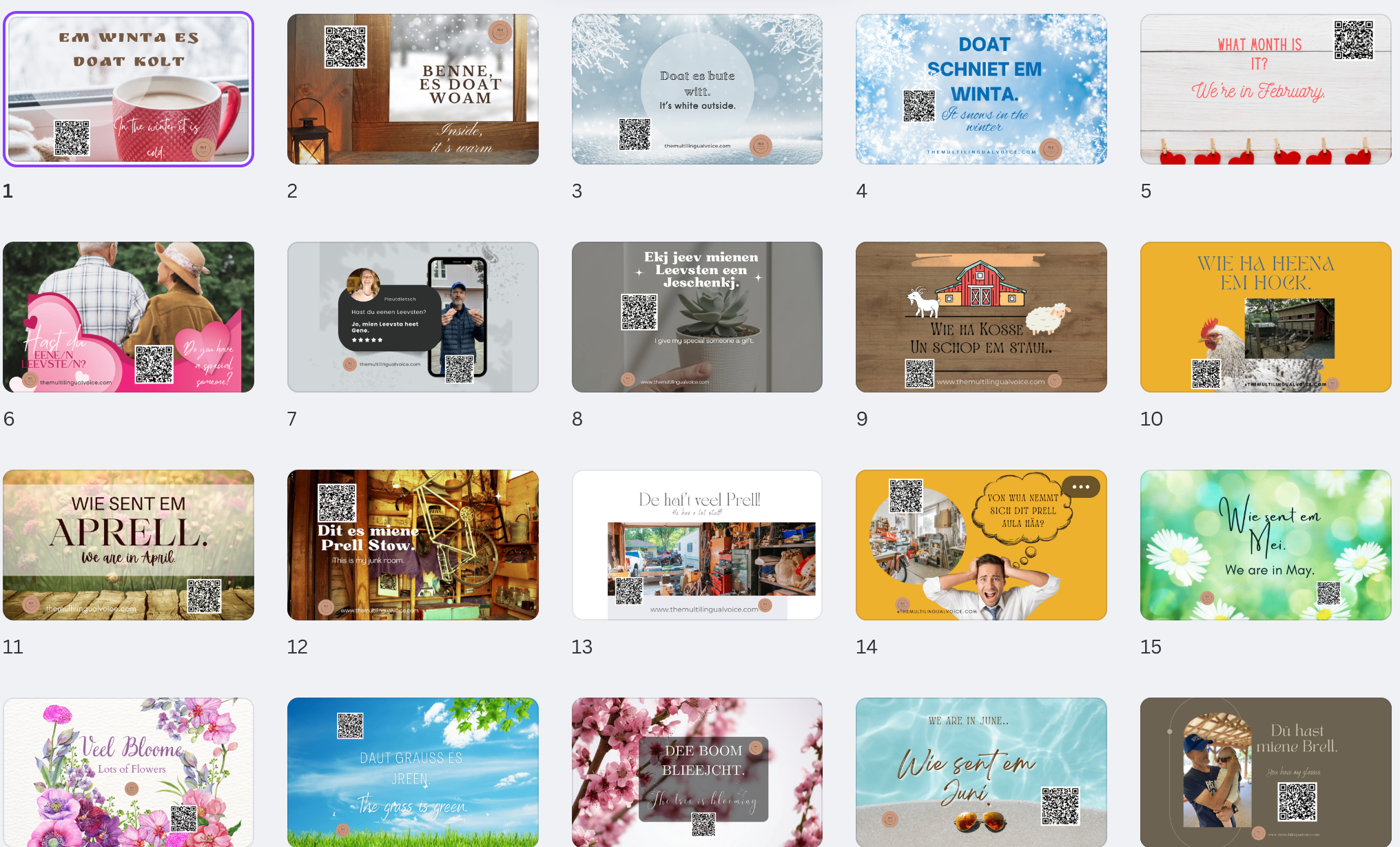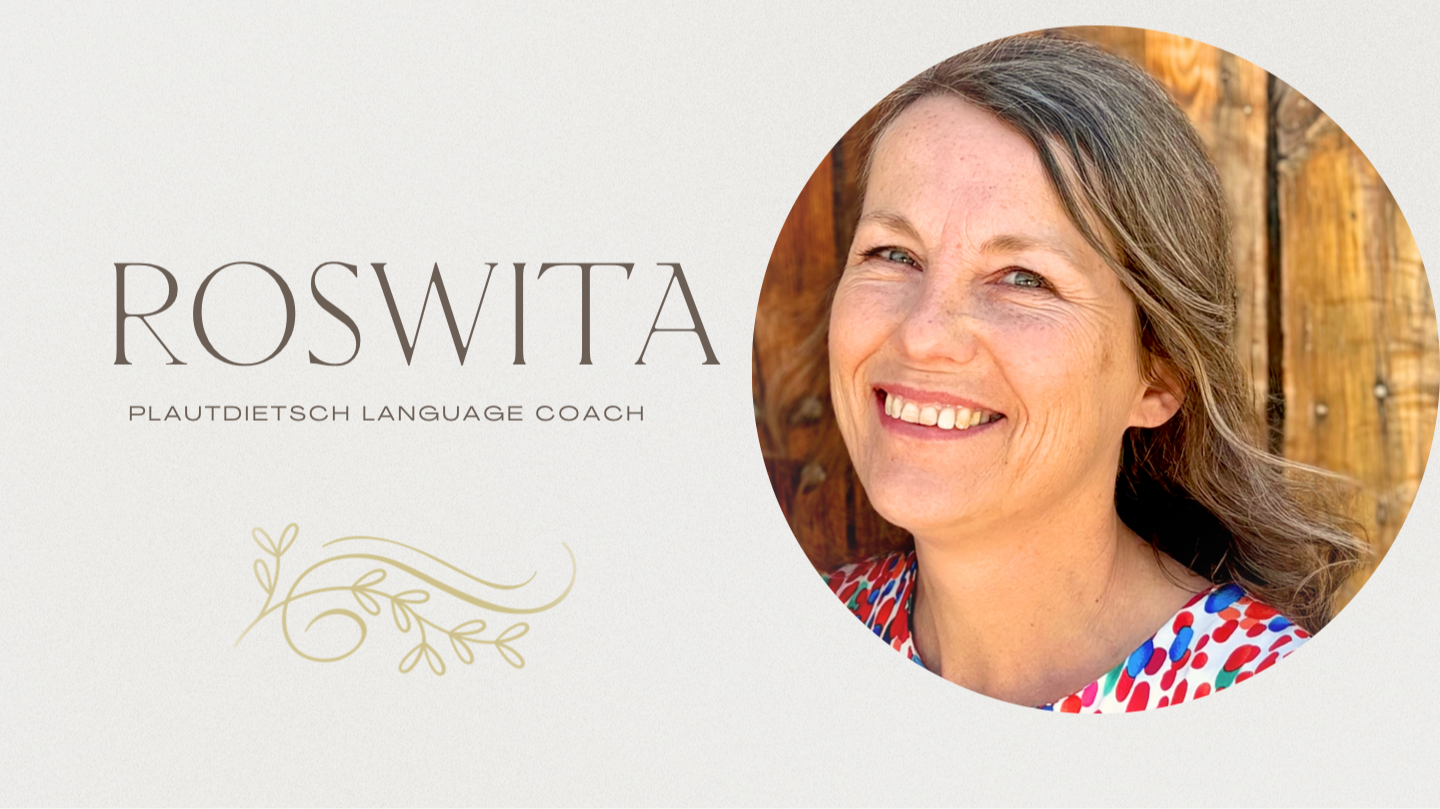The 4 Styles of Learning a New Language

When it comes to learning a new language, my husband and I have experienced how each of us gravitates to different styles of learning that reflect our personalities and skills.
Growing up we both were bilingual at an early age. Gene spoke Portuguese at age 3, and I began speaking English at age 4. Not having a lot of recall or feedback on our learning styles in our earlier years of learning, our season of learning the Russian language became an eye opener for each of us.
It all started with hiring a nanny to watch our two children while we were away at school learning this new language. Things were going well for me as I began the journey of learning vocabulary through a memorization system & using my dictionary to prepare my message for the nanny.
Gene, who was busy setting up the apartment and building the kitchen table, became frustrated about his language learning progress. He wasn’t making headway with the lessons from our formal lessons.
Then came the day when we connected with a family over tea. We were able to communicate some basic vocabulary, and Gene was in his zone. His language learning style awakened, and his progress moved a lot faster from that moment on.
This style is what other language researchers have identified as the communicative style of language learning. It is one where conversations with friends allow these learners to come alive and move forward with practicing the language.
In one of these situations where we were drinking tea with another family, Gene attempted to explain something but he lacked vocabulary. The native speaker prompted him to keep talking and said that he would guess as to what he was trying to say. This worked with a learning style of this kind because it allowed Gene to creatively use his limited vocabulary to communicate his train of thought.
I on the other hand lean towards a more analytical style in the language learning process., and I spend time studying the language patterns and listening to the language before attempting to speak it. This style prefers learning the language independently over being put on the spot while attempting to utter a word.
During those same tea-time conversations, I would attempt to say something, however, there were times when I would totally lose the attention of my audience. My focus was so zeroed in on saying it correctly that those listening were bored in the process of it.
The best way of learning a new language starts with understanding the various styles or preferences to help move you forward in the process. Setting up your routines and practices that include activities that motivate and engage you are vital on the journey of learning a new language. With my experience, I would agree with Willing who identified four major styles based on the preference of the learner.
Communicative -
As I already mentioned, my husband became extremely frustrated and impatient when he couldn’t talk to people. This type of learning preference will benefit from the following:
- Listening to native speakers
- Learning by conversation
- Learning new words by hearing them used in context
- Talking to friends
Analytical -
Learners with this style will enjoy the following:
- Studying alone
- Analyzing the grammar (for me this was fun because I could easily see similarities between the German and Russian grammar)
- Studying books and newspapers
Concrete -
Even though we had an excellent language school set up for us in Russia, I still preferred to learn in the confines of my apartment by talking to my house-help.
- Practice talking 1 on 1 with a native speaker
- Practice outside of class
- Learn through games, video, or TV
Authority-Oriented -
Learners with this preference will tend to ask a lot of questions in class. Why?! They love to learn in the following ways:
- Having the teacher explain the grammar and rules
- Writing everything in a notebook to refer to afterward
- Learn through reading and finding new words
What’s funny is that Gene and I actually find reading the Russian/English dictionary quite entertaining. I think we enjoy it now, because we have a good baseline of Russian comprehension, but starting out, the dictionary wasn’t our most desirable source of help.
During our first years in Russia learning the language, we were enrolled in a small school. During that time, we were definitely exposed to more than just one style of learning. In fact, we probably integrated all four of the mentioned styles of learning, however, when it came to using the style we gravitated to, we were definitely more focused.
Current brain research shows that our brains have created neural pathways that allow our processing to be more efficient. In learning a foreign language, we are challenging this brain mapping, and it becomes a 'brain workout' as we keep pushing forward in learning and recalling the new language. It takes persistence and focus.
In order to move forward in learning foreign languages, try to integrate multiple ways of learning into your routines. This will allow you to be more well-rounded in understanding and processing this new language. Becoming multilingual is a brain workout, and little by little with some concentrated focus, what was foreign becomes familiar!!
The Language Lab offers the community, guidance, and motivation for the new language journey. Click here to sign up!
Resource -
WILLING K. 1989. Teaching How To Learn. Sydney, NCELTR, Macquarie University.
DOIDGE N. 2008. The Brain that Changes Itself
The Language Learning Guide
Get the FREE resource to boost your language learning efforts.
If you are wanting to learn a new language for a specific situation and you just can’t find the program to meet that need, I’ve created a guide with strategies and tools to create phrases that resonate with your context.
We hate SPAM. We will never sell your information, for any reason.




